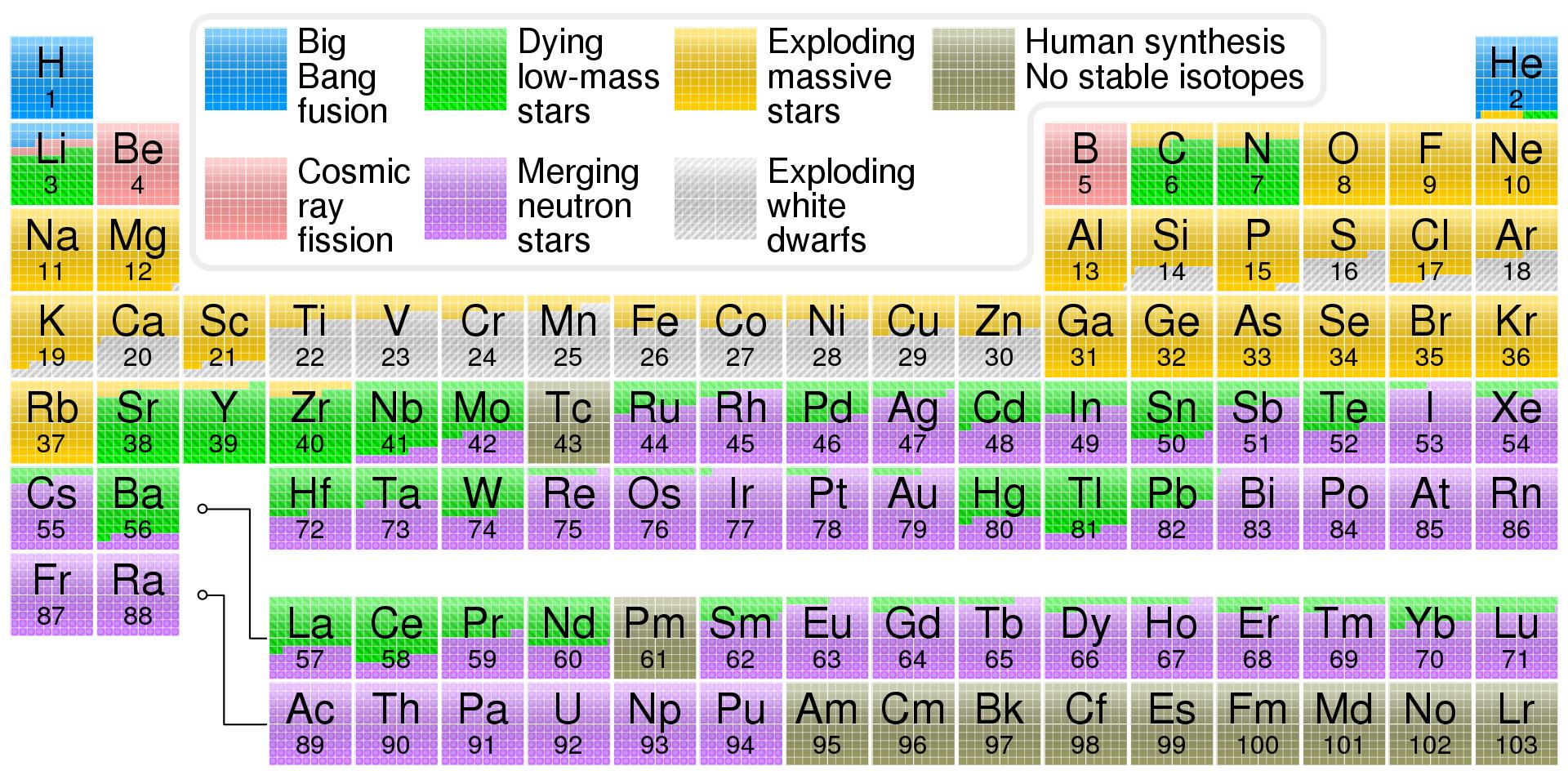For this question, the word 'metals' does not refer to elements heavier than hydrogen and helium. It instead refers to metals as defined by the periodic table of elements.
After researching the abundance of chemical elements, it is very clear to me that hydrogen and helium (and occasionally oxygen) far outrank all of the other elements.
In terms of mass fraction in the Milky Way:
Hydrogen = 73.9%
Helium = 24.0%
Oxygen = 1.04%
Which equals 98.94%
The following table shows the cosmological origin of each element:

In the scope of the universe: ##Just how likely or unlikely to form is a planet composed almost entirely of metals?
Just how likely or unlikely to form is a planet composed almost entirely of metals?
For this question, let's define "composed almost entirely of metals" as:
- Elemental composition by volume, not mass: More than 90% total by volume.
- Metals are defined in this question as belonging to either the transition metals or the post-transition metals groups.
- All other elements are not considered metals for this question. This include the alkali metals, the alkaline earth metals, or the metalloids groups.
Now, iron is the biggest contender here in terms of metals due to its abundance. But let's not forget about all of the others! (here's a question involving a planet made of iron).
I would love to further ask what the chance of life forming on such a planet would be, but of course that would make this question too broad.
